At the Xiaomi 13 and MIUI 14 new product launch event, the Xiaomi spokesperson first talked about Xiaomi’s performance in the premium smartphone market. The firm entered this niche with the Xiaomi 10 in 2020. During these three years, Xiaomi met many obstacles. Lei Jun introduced how they could overcome all those difficulties. There were six month-milestones:
The Xiaomi 10 was released in February 2020, entering the premium smartphone market.
The Mi 11 was out in December 2020, bringing a new design to the niche.
The follow-up model, the Mi 12, was launched in December 2021. It was the first top-end smartphone of the series focusing on experience. Also, it was the first model to benchmark the iPhone.
On the e-commerce platforms, the three models of the Mi 12S series achieved a favorable rate of more than 98%. At the same time, the second-gen folding screen smartphone MIX Fold 2 reached a 99.97% rate. Thus, it’s an ideal smartphone in the eyes of users.
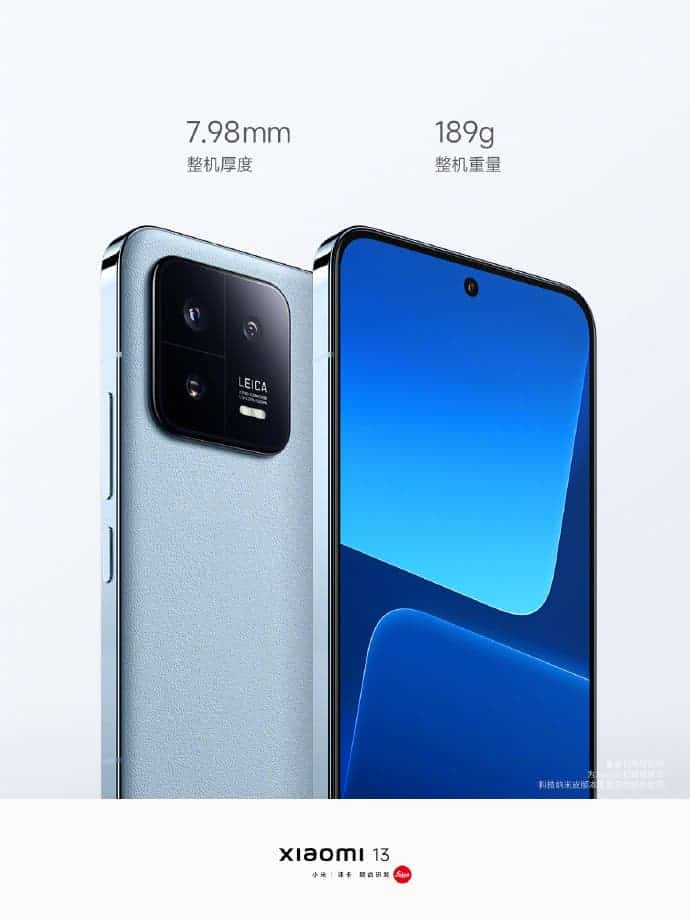
The next model is the Xiaomi 13.
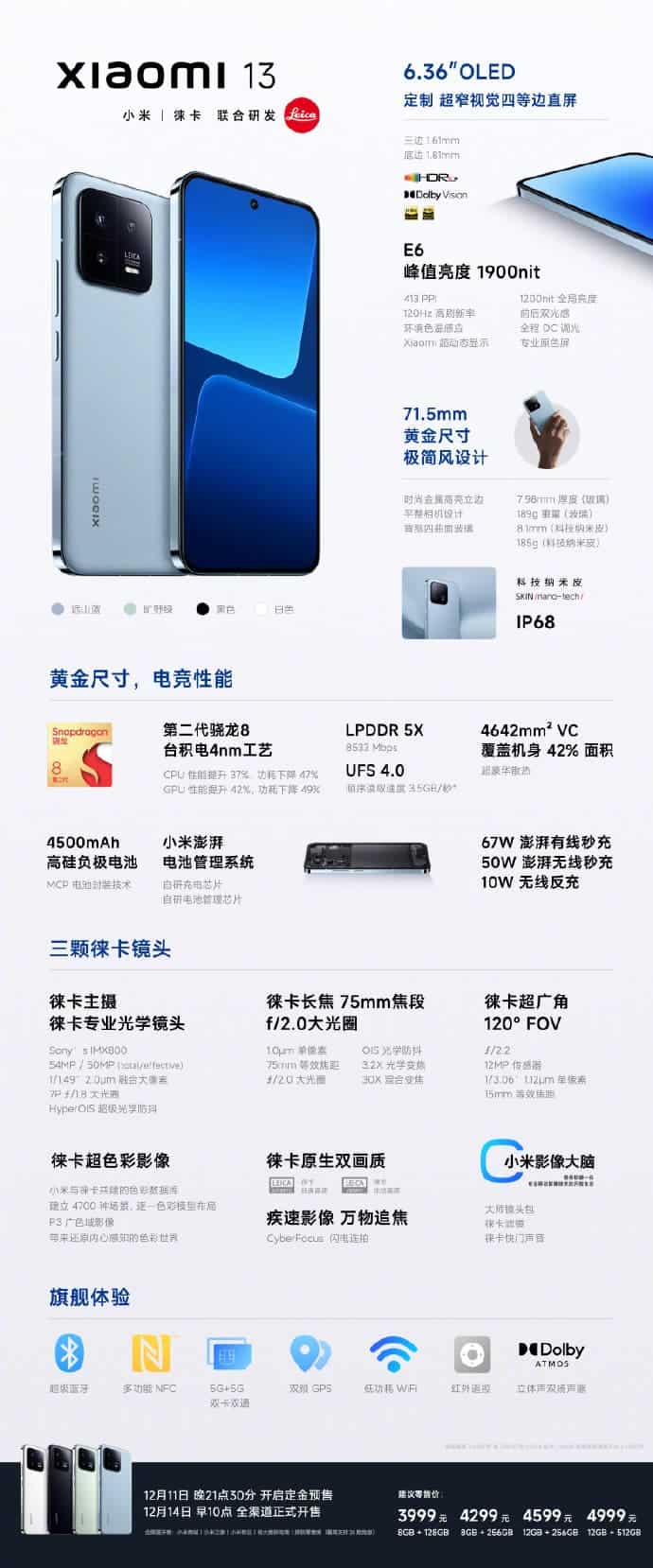
Xiaomi 13 Display
The Mi 13 adopts a new straight-screen design with a very narrow border. As a result, it has an immersive look and feel. The screen is 6.36 inches. At the same time, the frame is 1.61mm wide, and the screen-to-body ratio reaches 93.3%.
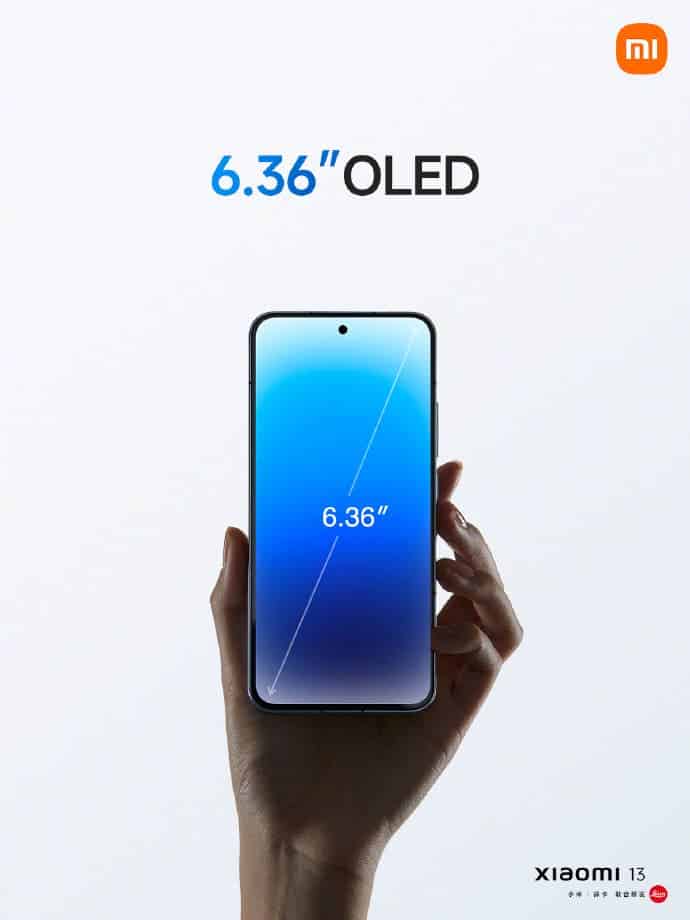
Also, it uses the new E6 material. The latter drives less power consumption. It is 22% lower than the Mi 12 under the same brightness. The outdoor full-screen brightness can reach 1200nit, while the peak brightness can reach 1900nit.
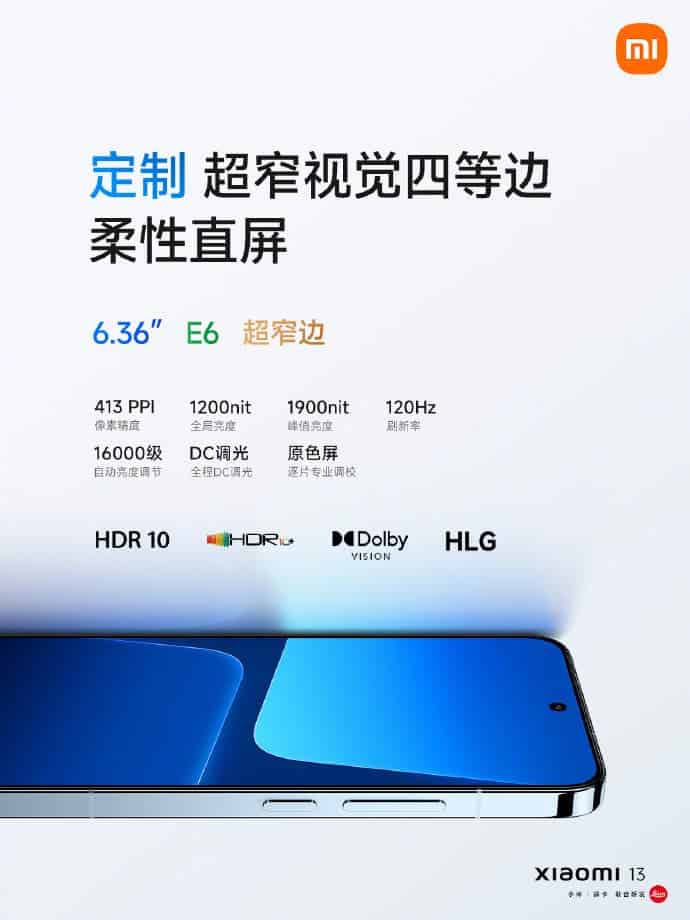
The Xiaomi 13 supports four HDR display standards: HDR 10, HDR 10+, Dolby Vision, and HLG. It can display a wide P3 color gamut and brightness exceeding 1000nit.
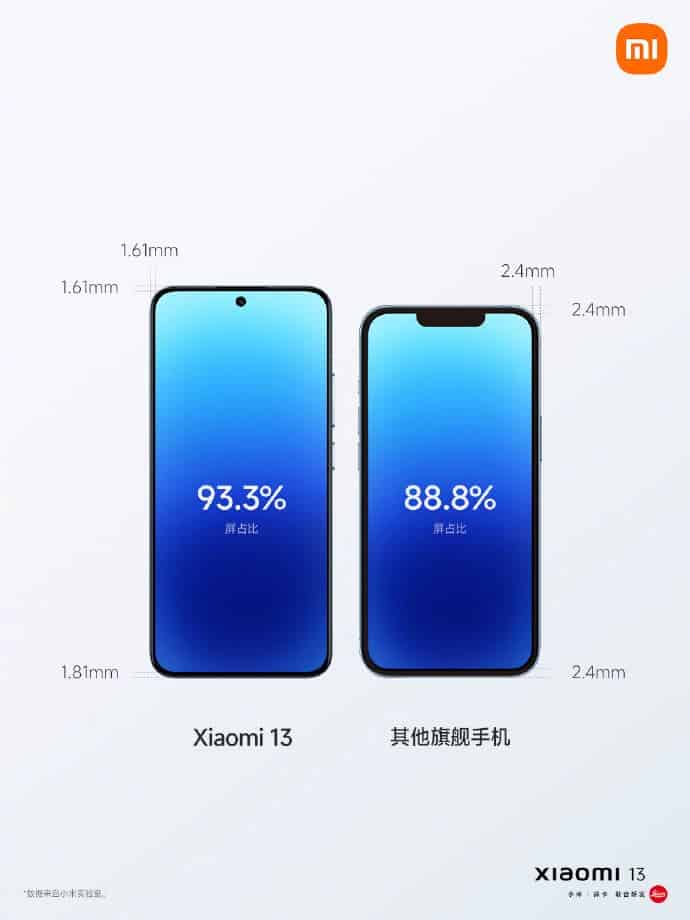
In addition, the Mi 13 also supports an ultra-dynamic display. Its imaging system can capture the dynamic range of the entire scene. Then, the ultra-dynamic display technology is responsible for displaying more realistic images. When watching photos or videos, it can display a wide range of areas, from deep black to bright white. This tech also brings brighter highlights and full details in dark parts while ensuring smooth transitions between different brightness areas.
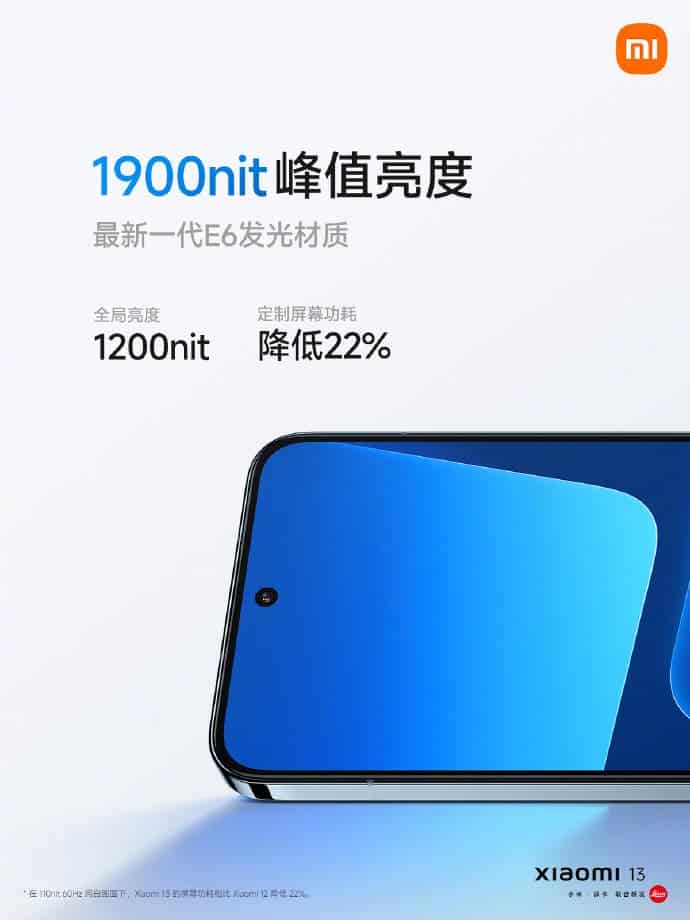
Design and Dimensions
The frame of the Xiaomi 13 is made of light aluminum alloy to achieve a neat upright frame design. The latter can better highlight the visual impact of the screen. By the way, this smartphone offers four colors: classic black and white, new green (3D glass), and distant mountain blue (nano-tech leather).
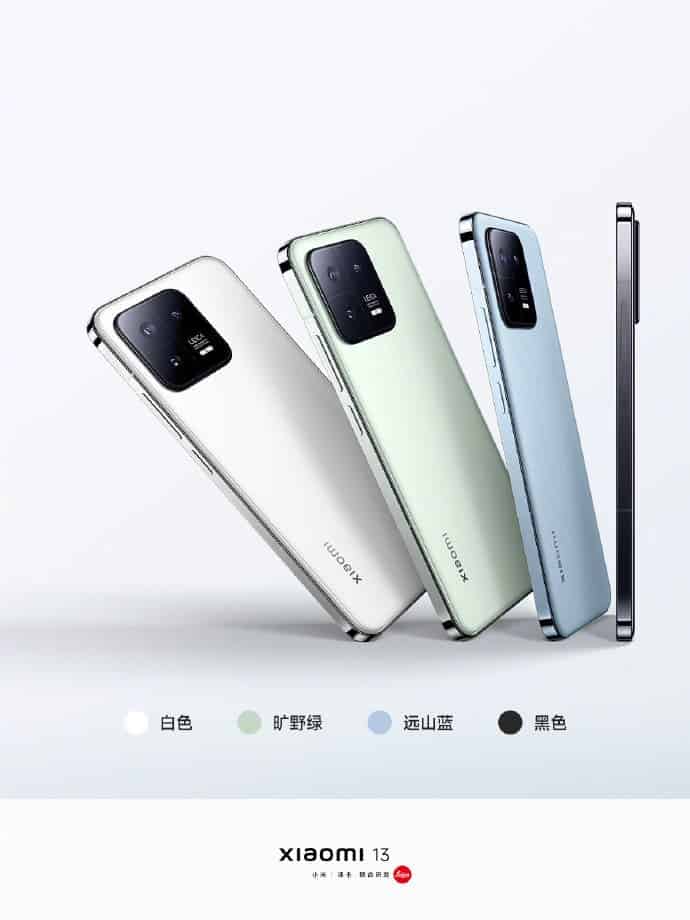
Among them, the nano-technology skin has the excellent anti-dirty ability. After sticking to ballpoint pens, ink, and other stains, you can wipe it off using paper towels or erasers.
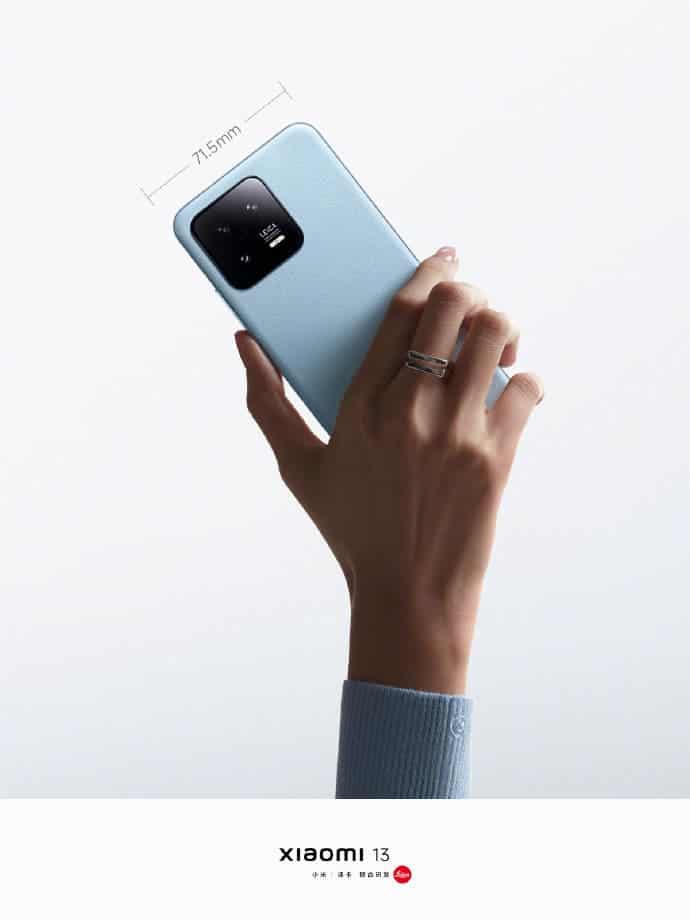
The handset’s thickness is 7.98mm, and the weight is 189g. The 3D glass process on the back makes the phone look stylish and provides an excellent grip. It has an IP68 dustproof and waterproof rating.
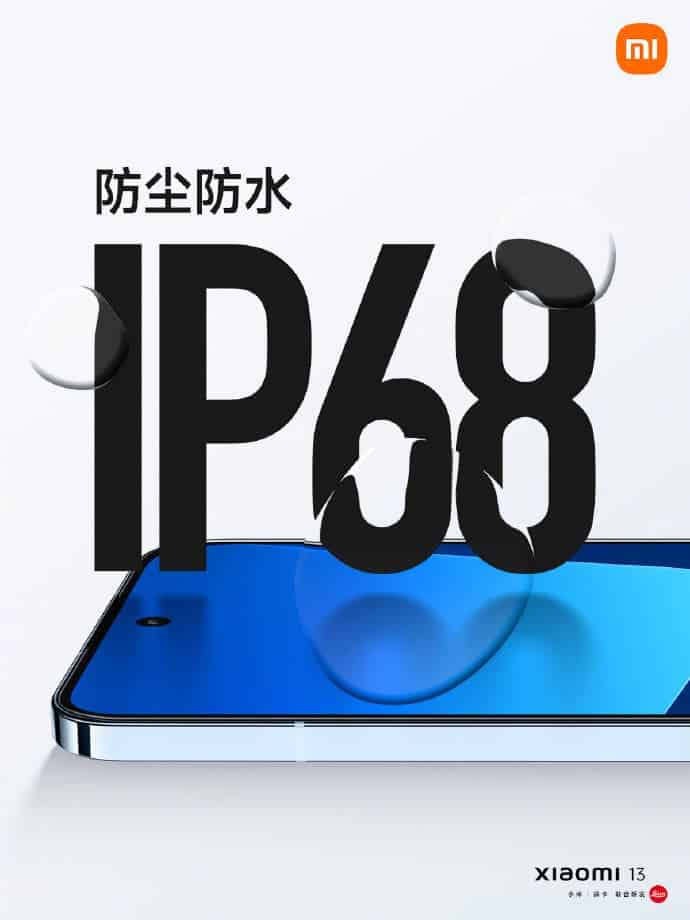

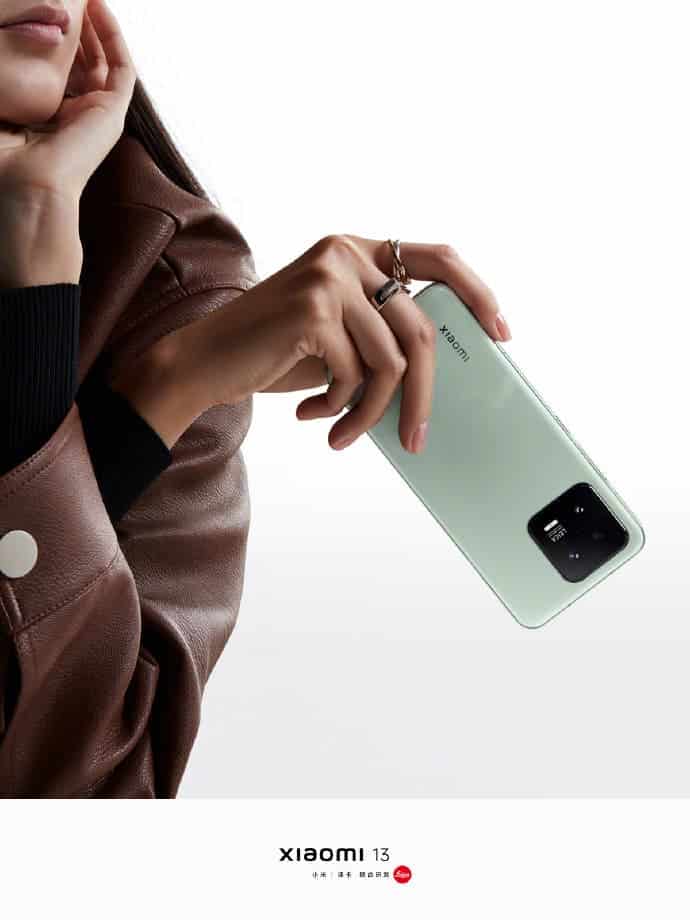
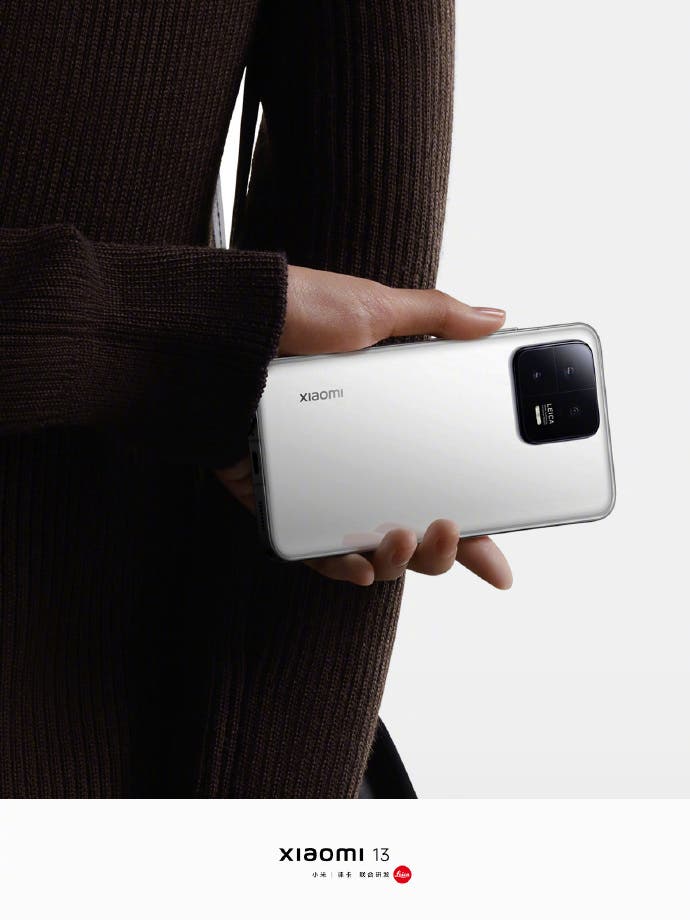

Xiaomi 13 Camera
The Xiaomi 13 comes with native Leica imaging capabilities. In simple words, new hardware, software, and Leica support bring a new shooting experience.
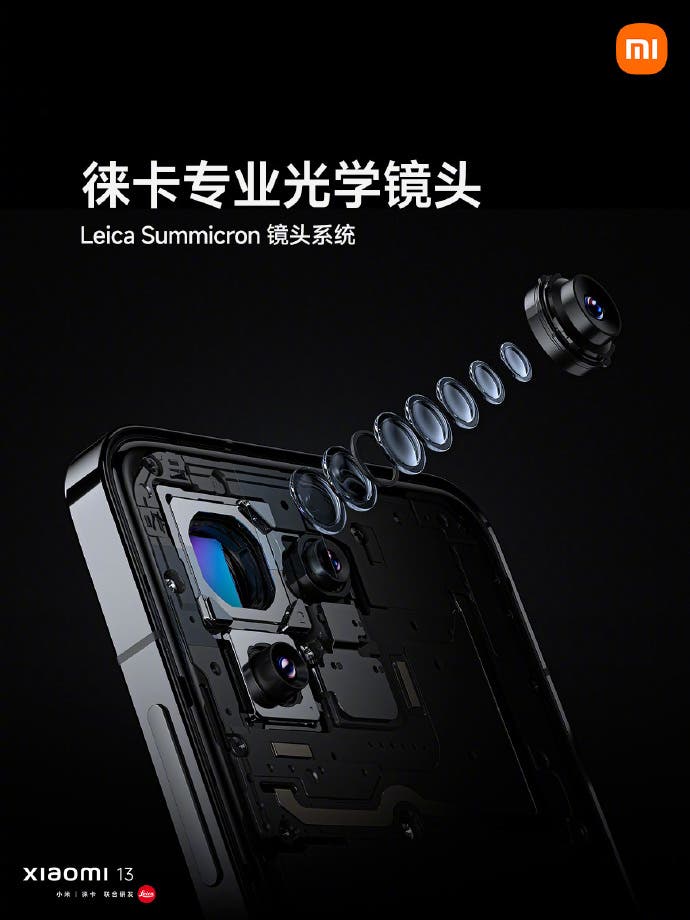
The three rear lenses cover the optical zoom range of 0.6x-3.2x and support up to 30x digital zoom. Each lens has a special Leica optical certification, high resolution, large aperture, and almost imperceptible distortion. These three prove that a lens provides excellent image quality.
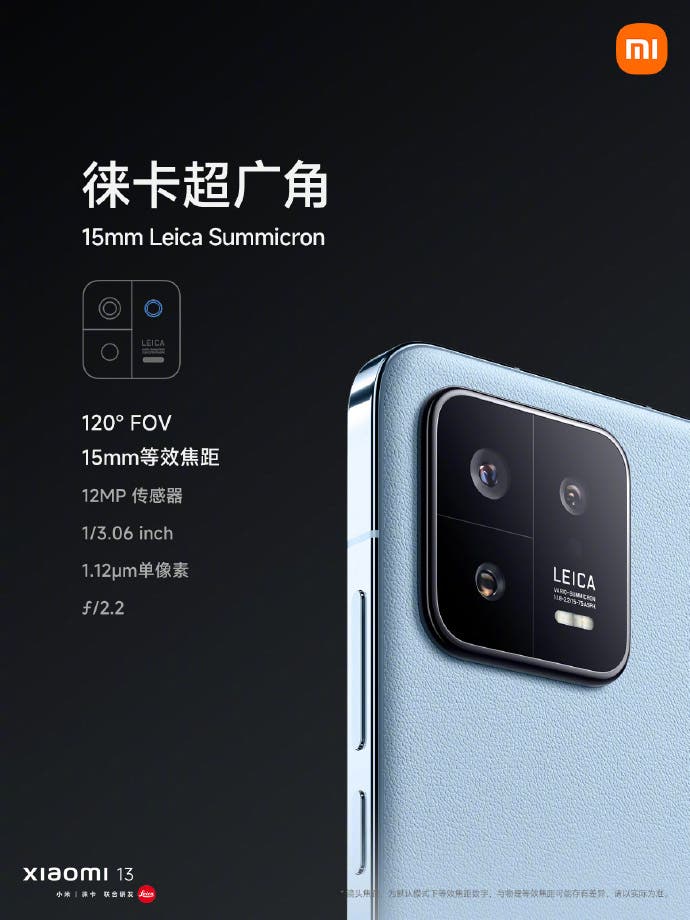
Among them, the primary lens uses the IMX 800 CMOS. It has a 7P aspheric lens design, ALD prof ultra-low reflection coating, and new cycloolefin material. At the same time, it supports Hyper OIS. It’s a super optical image stabilization technology that replaces a handheld gimbal. The new super-outsole sensor uses an additional 3.5% redundant area to obtain a larger field of view when shooting videos. It increases the field of view by 5° compared to the Mi 12.
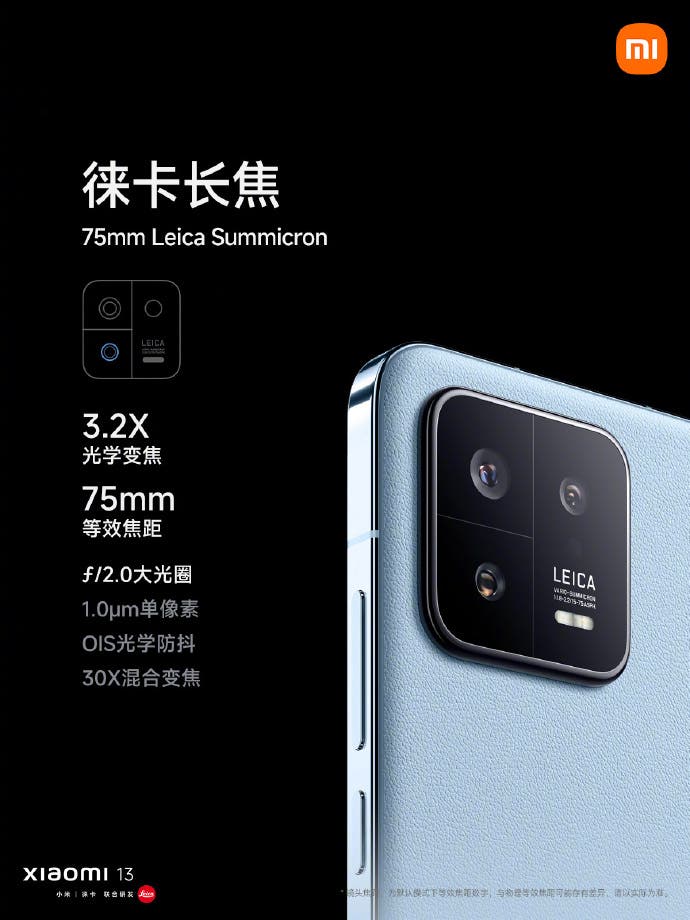
By default, the primary camera uses a four-in-one readout mode to shoot 12.5MP photos. When you need double zoom, the main camera switches to the 50MP readout mode to take a 12.5MP photo.
The telephoto lens of the Xiaomi 13 is designed with an equivalent focal length of 75mm and a large aperture of F/2.0. This sensor also supports OIS. 75mm is the classic focal length of Leica, and its field of view is 32°. When the distance is 1 meter from the portrait, 75mm can take a headshot.
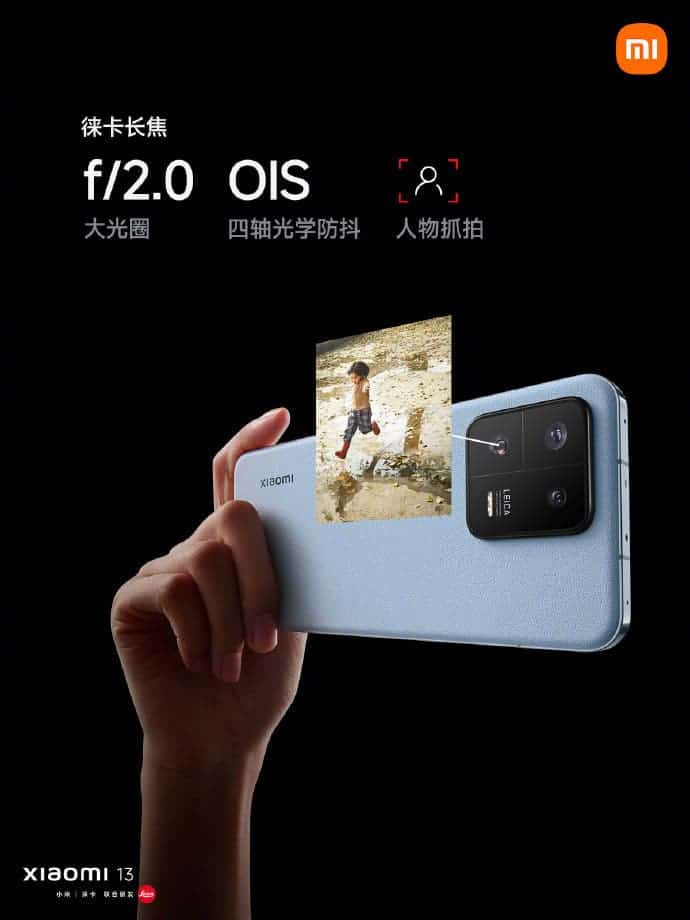
The Xiaomi 13 has four built-in Leica watermarks. Unlike the mainstream filter apps on the market, the same Leica filter will not distort the picture too much. It will adjust the color and tone to retain the original picture colors.
Thanks to the complete focal length, the Mi 13 supports a full series of master lenses for the first time. There is also a new 75mm portrait mode based on the telephoto lens. It brings an ultra-shallow depth of field, natural skin color, and unique bokeh and light-shift effects.
Performance
This phone sports the second-generation Snapdragon 8 mobile platform. Plus, there is a new LPDDR5X memory (peak value 8533Mbps), UFS 4.0 flash storage (3.5GB/s read speed and 2.6GB/s write speed), and an ultra-luxury cooling system with 4642mm2 VC.
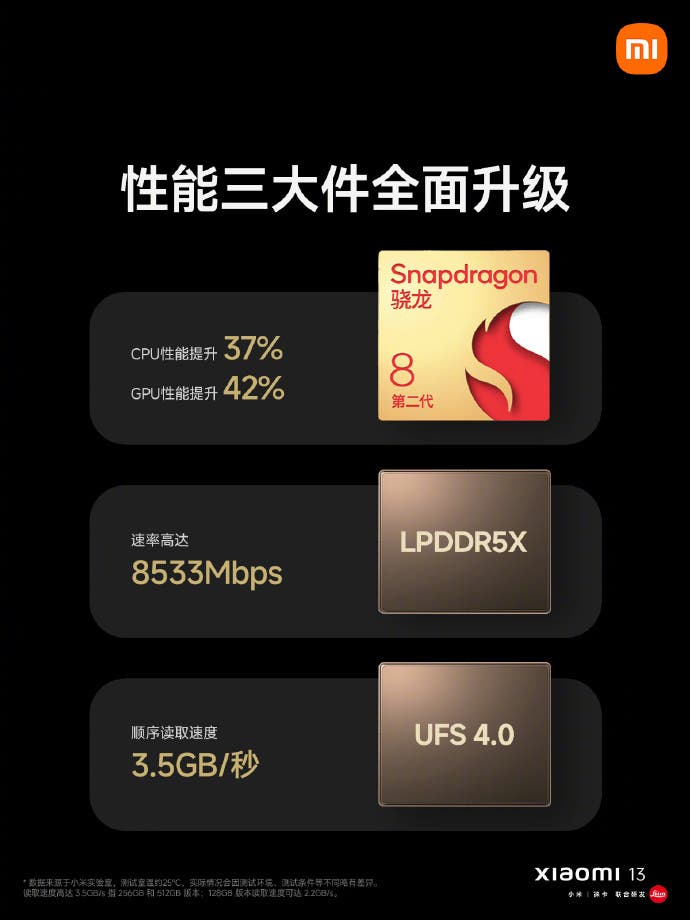
This handset comes with ideal connectivity options. For instance, it supports the latest Wi-Fi 6 wireless network, 4K QAM, and dual WLAN acceleration and can provide a maximum rate of 3.6Gbps (5GHz + 2.4GHz).
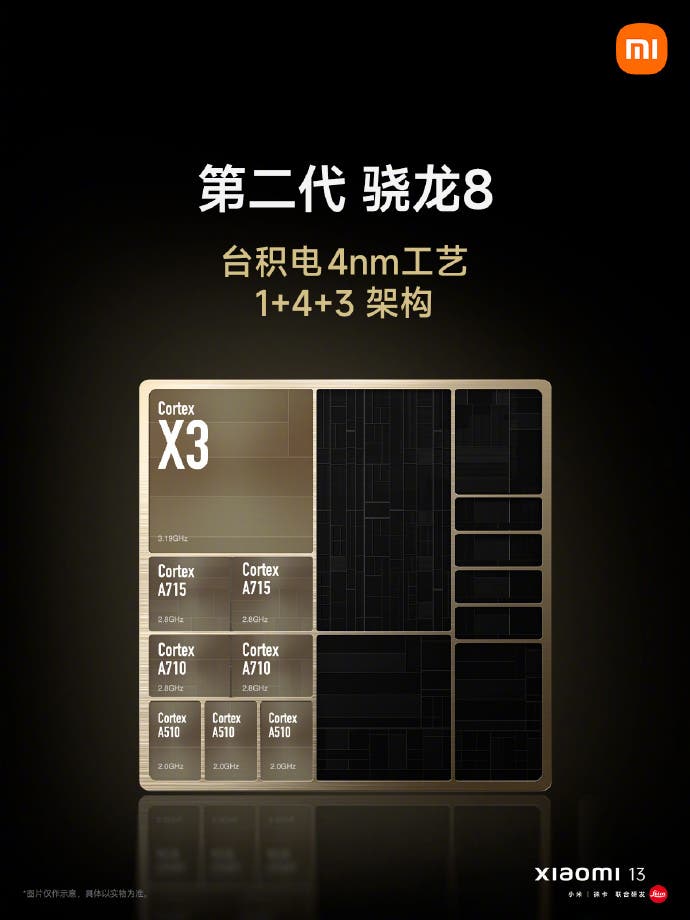
Due to the dual-card dual-pass support, it will keep two cards online. So when you’re using the primary card to make calls, the second card can still access the Internet, send and receive text messages, and even answer calls. Users can switch between the two calls without interfering with each other.
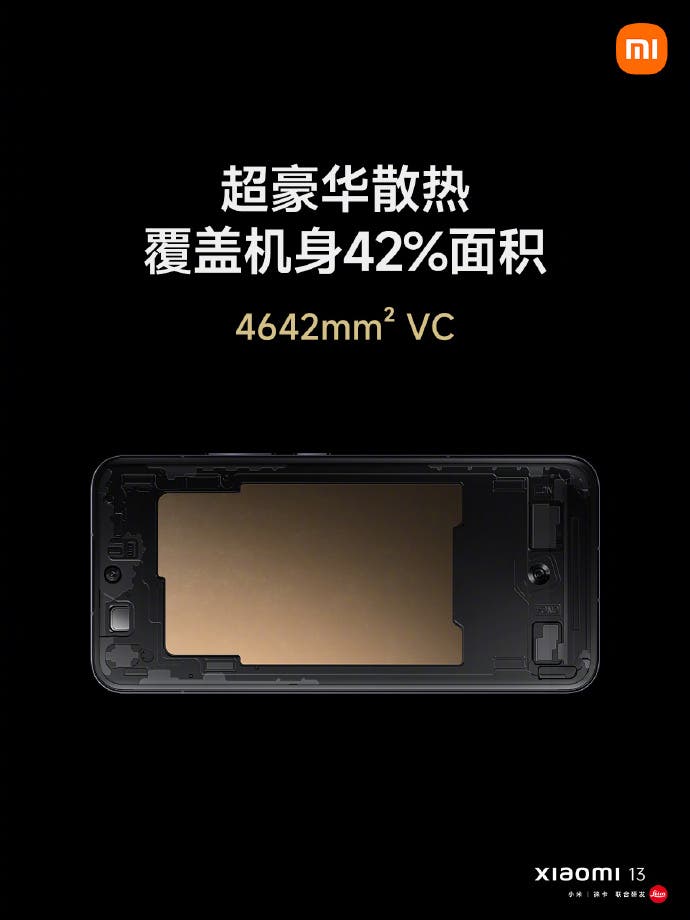
The Mi 13 is said to have the strongest battery life among all top-end Xiaomi phones. There is a built-in 4500mAh high-density battery. Under Xiaomi’s standard battery life test, the battery life of the Mi 13 can reach 1.37 days, far exceeding the iPhone 14 and even surpassing the iPhone 14 Pro Max.
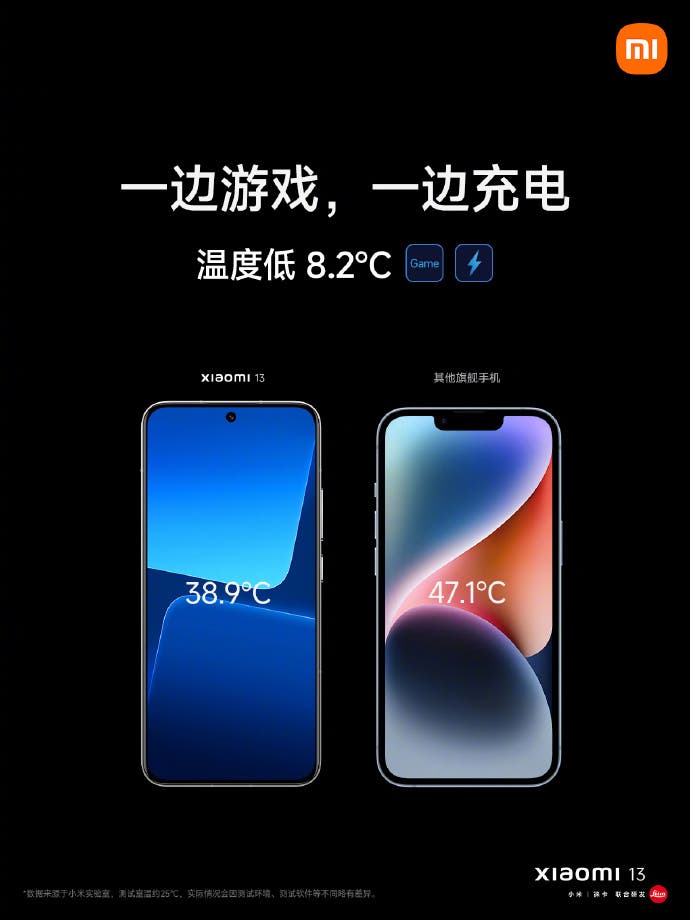
The Xiaomi 13 supports 67W wired charging, 50W wireless charging, and 10W wireless reverse charging. When charging through wires, it can reach 100% in 38 minutes. For the same goal but using a wireless charging method, it will take 48 minutes.
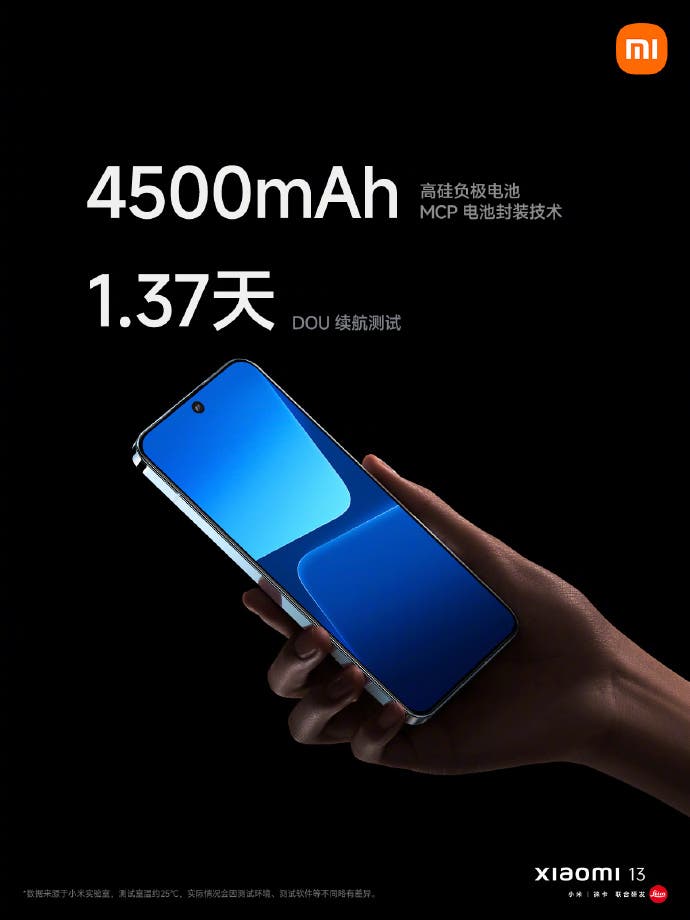
The rest features include X-axis linear motor, Dolby Atmos, Dolby head tracking, infrared universal remote control, and other functions.
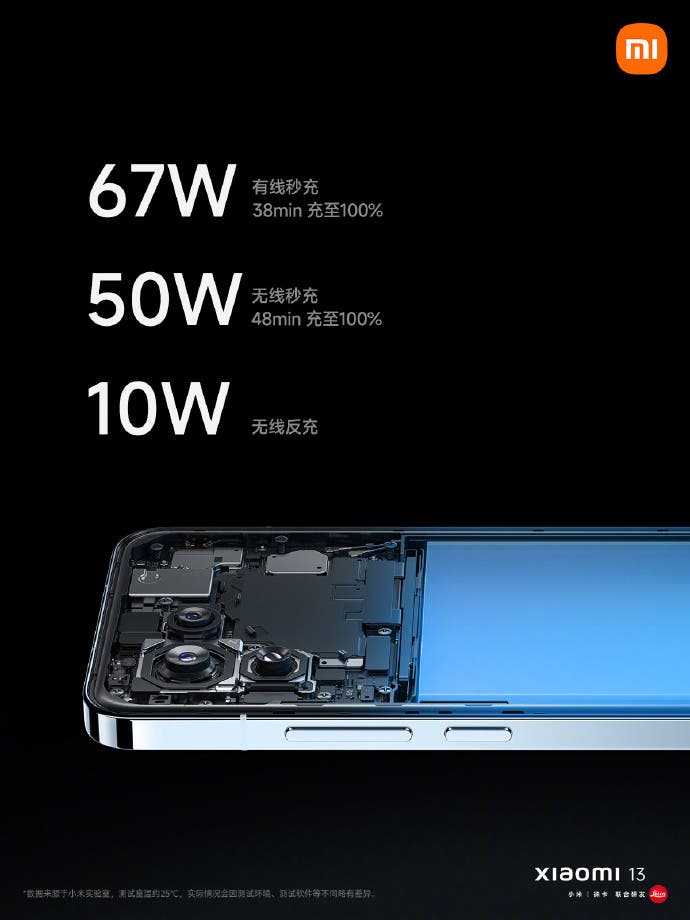
Price
Buyers can choose from four storage variants. The 8+128GB model costs 3999 yuan ($575); the 8+256GB version is available for 4299 yuan ($618); the 12+256 version is 4599 yuan ($661); the 12+512 version costs 4999 yuan ($718).
The Mi 13 also has five limited-edition custom colors. They are available in 12GB + 512GB version, priced at 4,999 yuan ($718). There are 50,000 units available for purchase. Each user can buy up to 2 units.
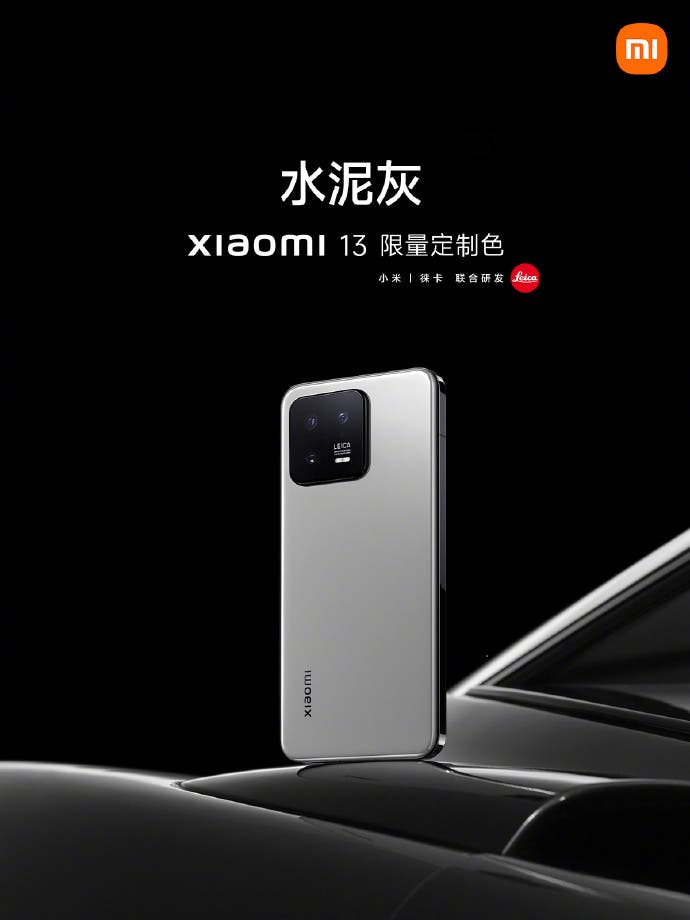
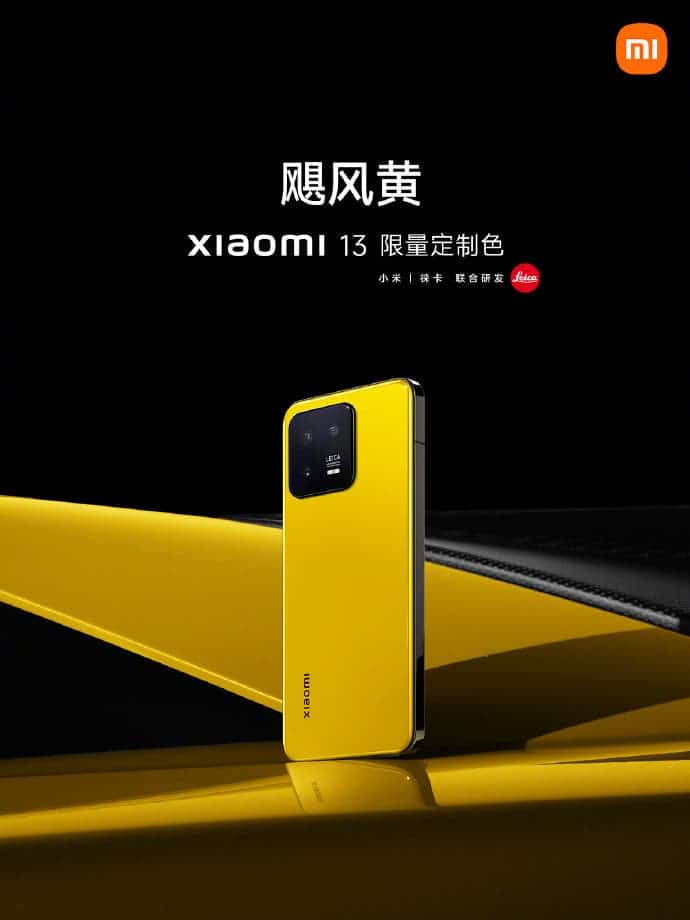
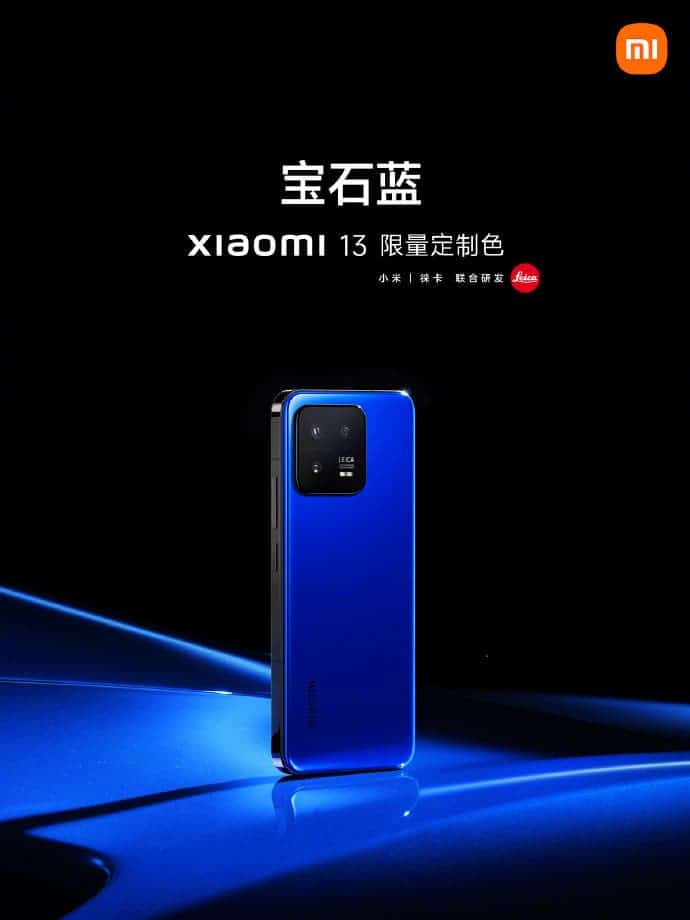
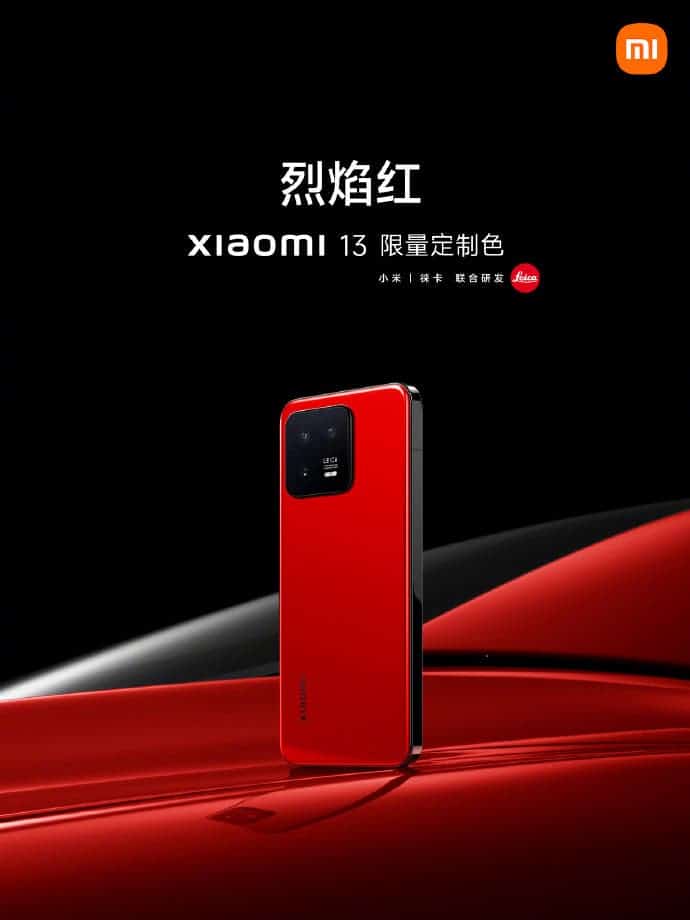
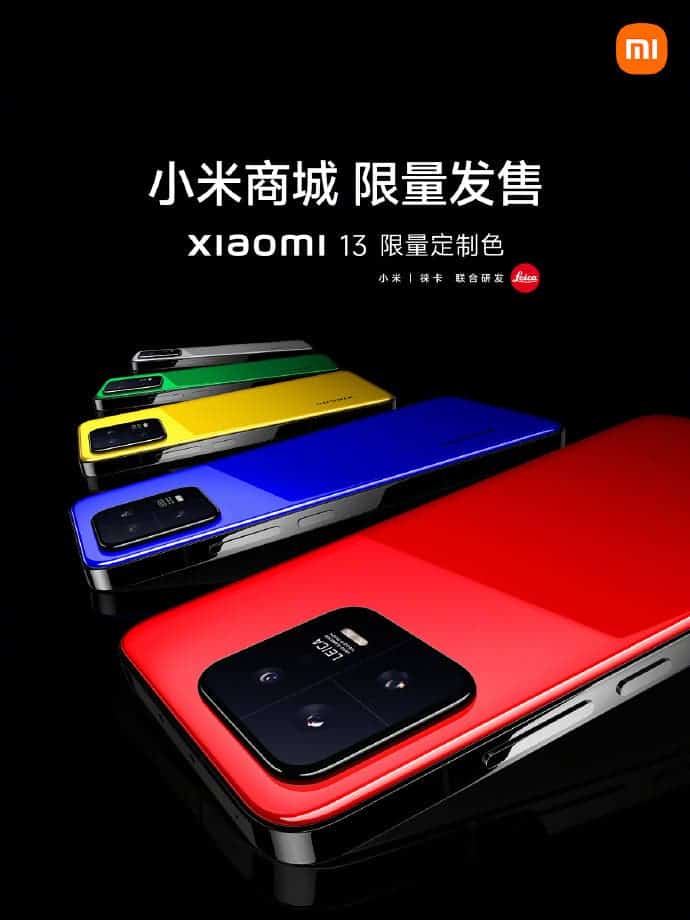
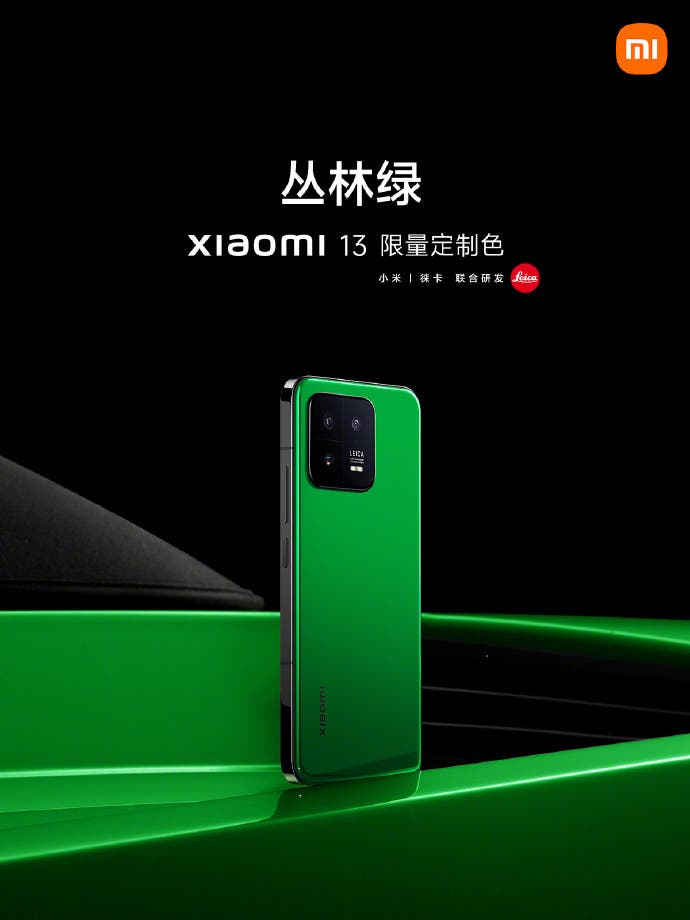

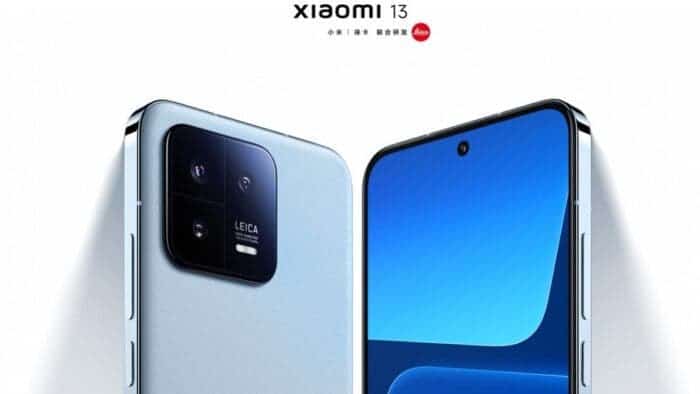




sweet, now xiaomi, export those models without the mandatory apps, and without downgrading the spec sheet and I’ll be a buyer.